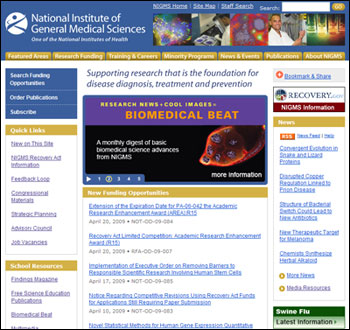As part of our efforts to develop and sustain a highly skilled and diverse biomedical research workforce, we have introduced a new mechanism to complement or enhance research training activities. The Innovative Programs to Enhance Research Training (IPERT) will support creative and innovative research educational activities through courses for skills development, structured mentoring activities and outreach programs.
We expect the scope, purpose and objectives of IPERT applications to be as varied as the potential applicants. Both institutions and organizations are eligible to apply.
An IPERT program should address a documented need, problem or challenge in research training and include measurable goals and objectives. Applications should explain the balance of effort and resources dedicated to each activity and how the activities will integrate. Proposals should also align with the NIGMS Strategic Plan for Biomedical and Behavioral Research Training, which recognizes that:
- Research training is a responsibility shared by NIH, academic institutions, faculty and trainees.
- Research training must focus on student development, not simply the selection of talent.
- Breadth and flexibility enable research training to keep pace with the opportunities and demands of contemporary science and provide the foundation for a variety of scientific career paths.
- Diversity is an indispensable component of research training excellence and must be advanced across the entire research enterprise.
The IPERT program may be of particular interest to institutions and organizations with current or past support from the MARC Ancillary Training Activities program (T36), which has lapsed and will not be reissued. Conference and meeting programs previously supported by the T36 mechanism may be more appropriately supported through the NIH conference grant mechanism (R13/U13).
While a letter of intent is not required, we strongly encourage anyone who is interested in submitting an IPERT application to consult with me or other staff of the NIGMS Division of Training, Workforce Development, and Diversity to determine if this is the best mechanism to support their ideas and plans.


 A new look and feel for the
A new look and feel for the  and
and 